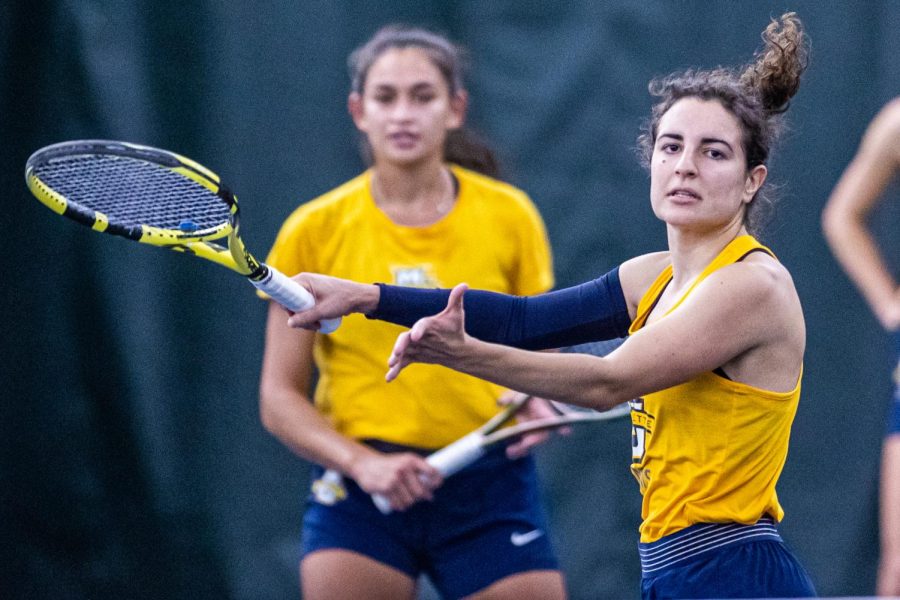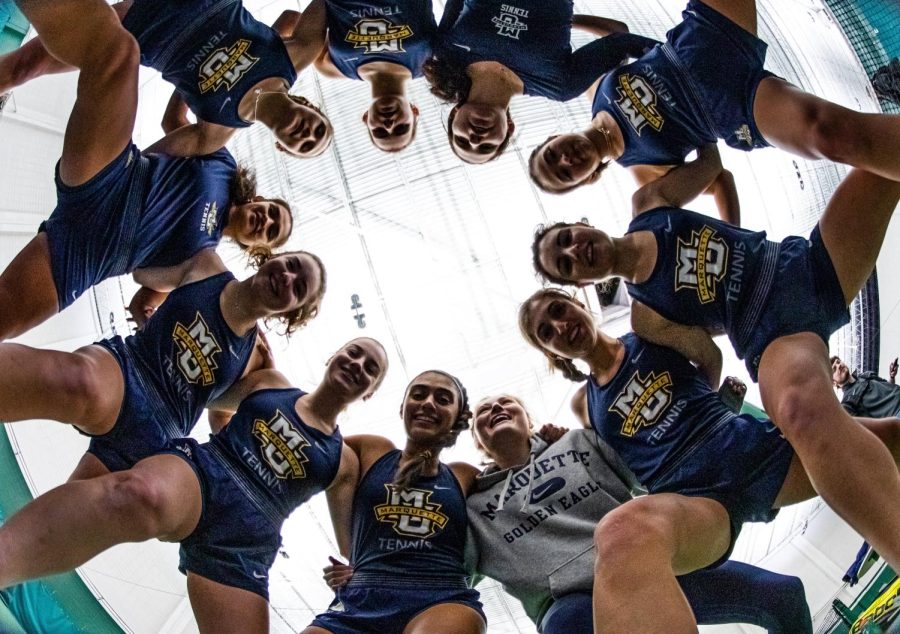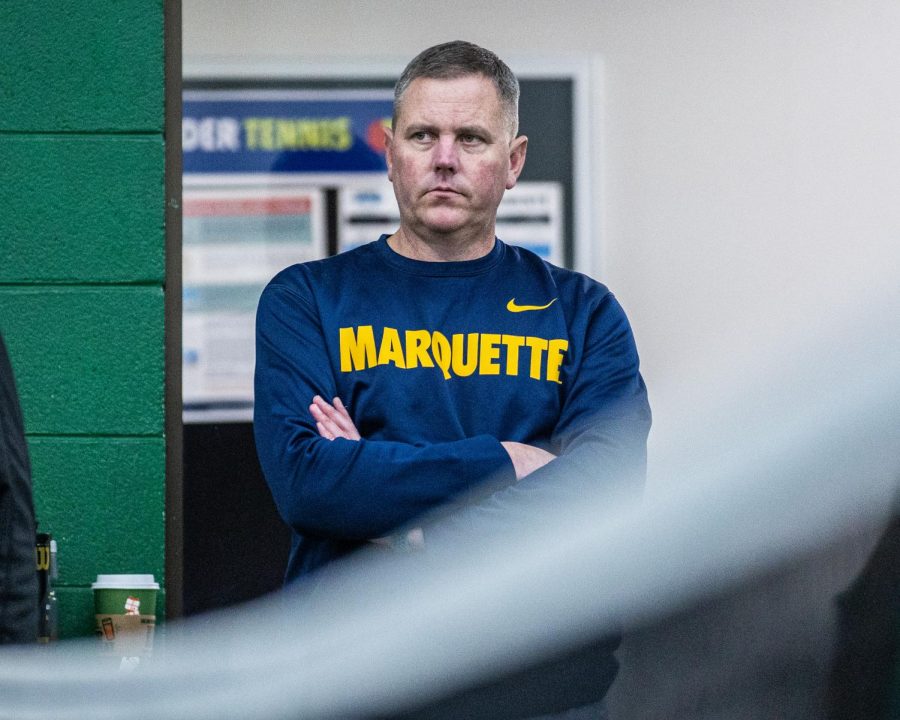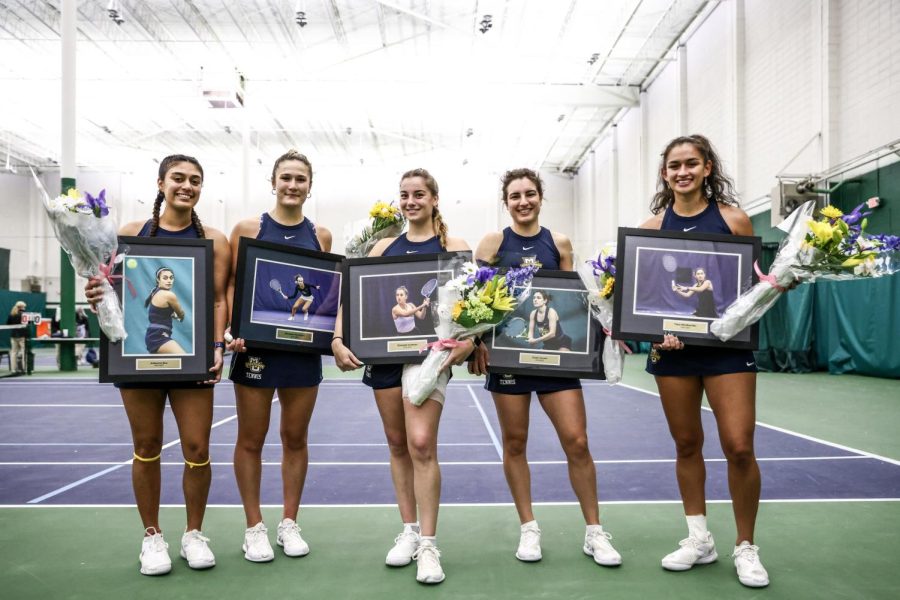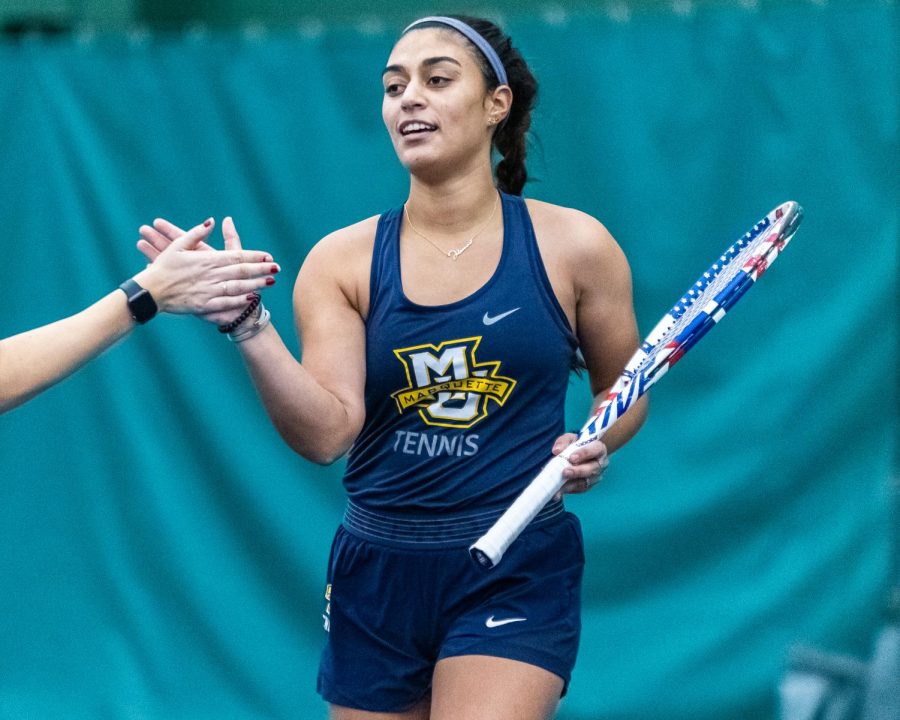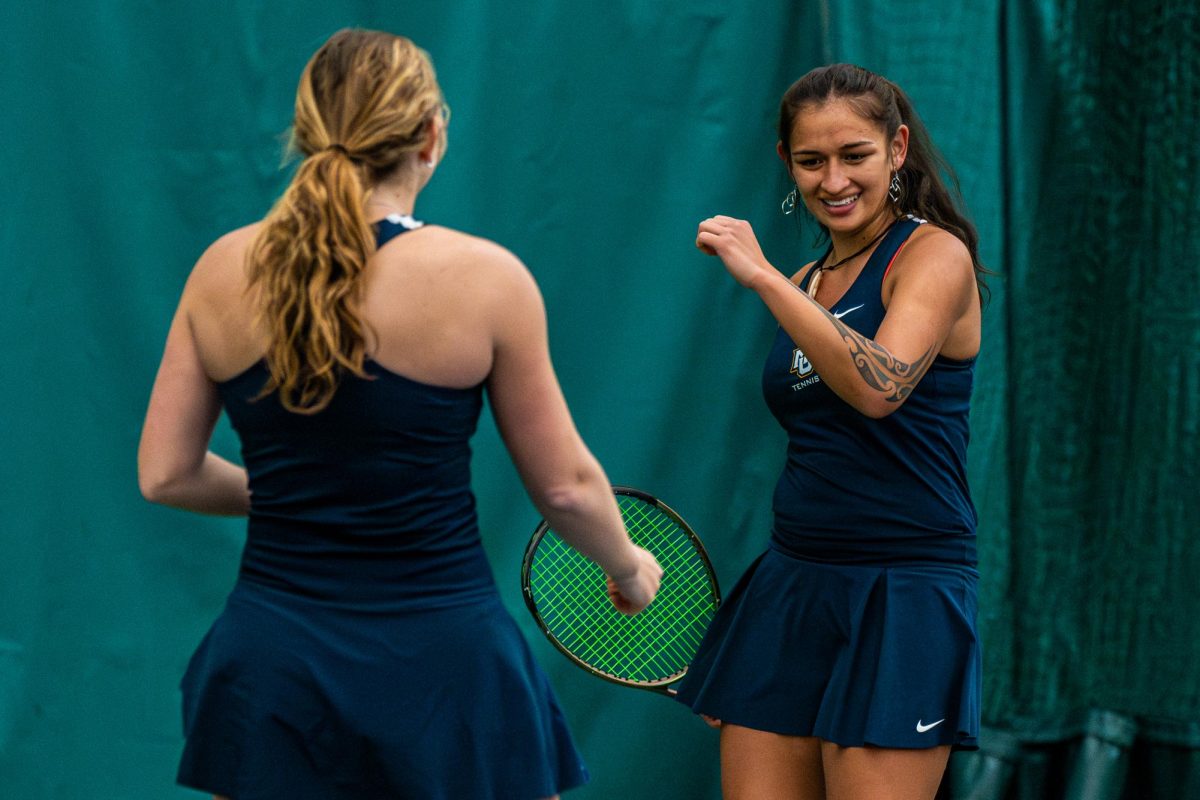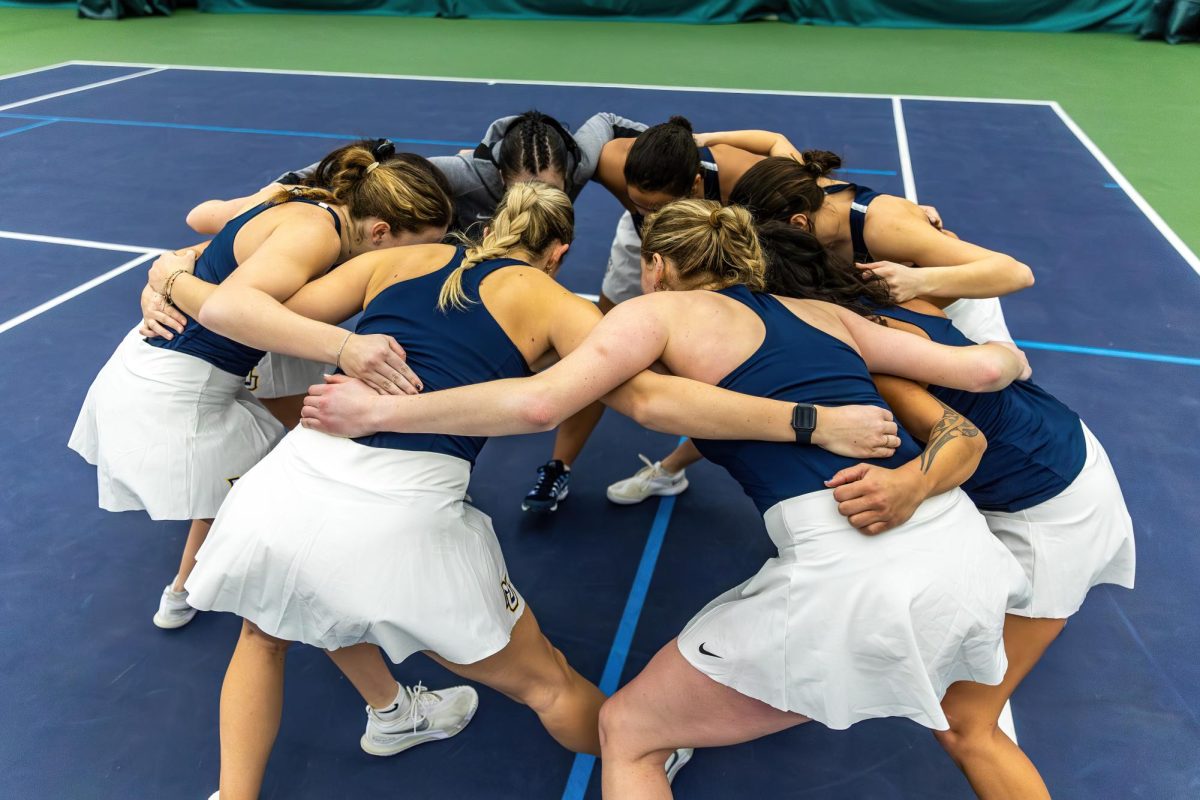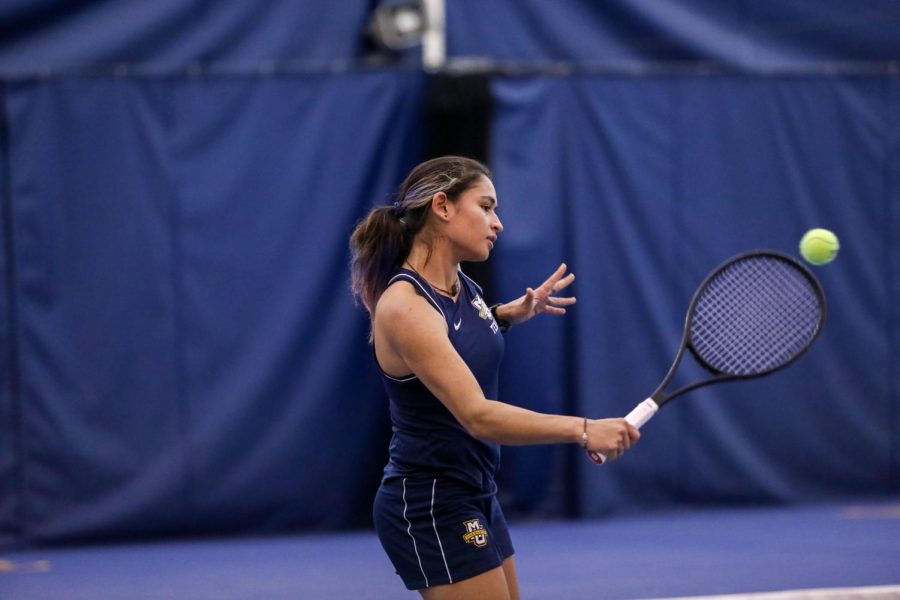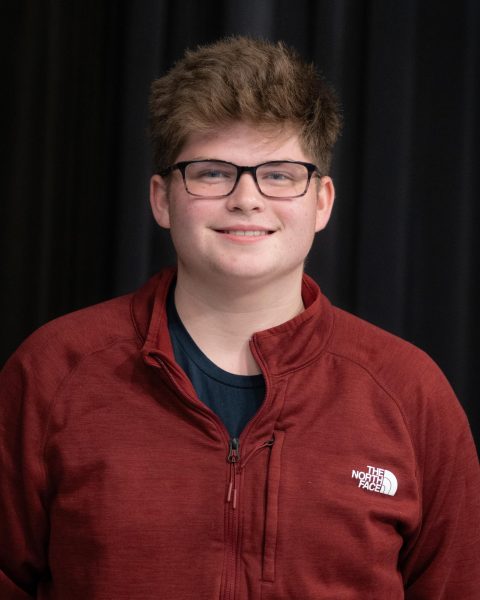As Marquette women’s tennis is in the midst of a hotly contested bout against Seton Hall April 8, senior Giulia Turconi runs up to the net to hit a volley, something she has done more times than she can count.
She plants her feet and gets ready to swing her racket in hopes of giving the Golden Eagles a much needed point, but instead, Turconi misses the ball.
Angry and flustered, Turconi turns around and looks at her partner, senior Tiana Windbuchler. With a look of unwavering calmness on her face, Windbuchler gives Turconi a quick message: Don’t worry about it.
While simple, Windbuchler’s words are something that Turconi does not take for granted.
“During singles, we cannot really talk to each other because we’re playing two completely different matches. But for doubles, just two people together, two players who share responsibility and share ideas,” Turconi said. “We’re always very positive and try to look forward and try not to analyze the mistake because that doesn’t really help us.”
Turconi and Windbuchler are two of Marquette’s doubles specialists, which women’s associate head coach Dusan Medan said is a term reserved for players that are consistent in doubles and regularly have a spot in the doubles lineup.
“We like to say that we always have a leader on a doubles court and somebody (who) separates themselves big time,” Medan said. “It’s a terminology that we use for players that have been successful in doubles, they’re good around the net and they have a good grasp of the doubles game overall.”
While Medan does not specifically recruit doubles specialists, he knows what he is looking for in a doubles player, like the ability to serve, volley and move through the court quickly.
But as important as athleticism is, a strong intuition and knowledge of what to do in specific situations are crucial.
Medan likened it to a quarterback in football having a designed play given a specific situation.
“A good leader on a doubles court will have a playbook of options out there before they go to serve and return,” Medan said. “Being able to communicate them with a partner is crucial, and obviously try to execute and have enough composure and confidence to try to execute the plan.”
Even though Turconi and Windbuchler have a smaller and shorter huddle than the Green Bay Packers, what is said between them is necessary for winning the match.
When they talk in between points, it is about more than just a mental reset or moving on after a botched hit. They talk about different strategies for the upcoming rally, such as what formation they want to run or what will be the follow-up to the serve.
This communication leads to chemistry, which Windbuchler said can override pure talent on the court.
“In doubles, you can have two average players play against two great players,” Windbuchler said. “The great players don’t know each other that well, like this connection that the two average players have, then chances are, the average players are going to be playing much better doubles than those two great players.”
Medan said how a player works with their teammates is a factor when determining the positions for the doubles point.
“You want your entire roster to have ability to do that (communicate),” Medan said. “When we come up with a doubles lineup, we want to make sure that it’s not just the skills but being able to observe and see a bigger picture and communicate.”
For some people, an ability to communicate effectively with each other during a match can be chalked up to a bevy of different factors like age or personality. For Turconi and Windbuchler, it comes from shared experiences.
Both Turconi and Windbuchler are international players that came to the United States to play collegiate tennis. Turconi is from Marnate, Italy, while Windbuchler is from Auckland, New Zealand.
Even though they are from opposite sides of the world, Windbuchler said this means they have a deeper connection to each other off the court.
“We both love home and miss it a lot,” Windbuchler said. “So we get through that together quite a bit.”
Windbuchler knows she can go to Turconi for help or advice with everything, not only tennis related. Such examples include when she is sick or injured or for something as simple as the normal tribulations of being a college student.
When Marquette was in Florida for a spring break tennis tournament, both did not play together. But, that didn’t stop Windbuchler from going to Turconi to help reduce some pre-match nerves.
The two international players have known each other for four years now and to Windbuchler, the pair will always have two things in common.
The first is a love for the movie “Mamma Mia.” The second is similar energy.
“We do notoriously have quite a calmness to us,” Windbuchler said. “We’re just very much on the same wavelength.”
This article was written by Jack Albright. He can be reached jack.albright@marquette.edu or on Twitter @JackAlbrightMU.


